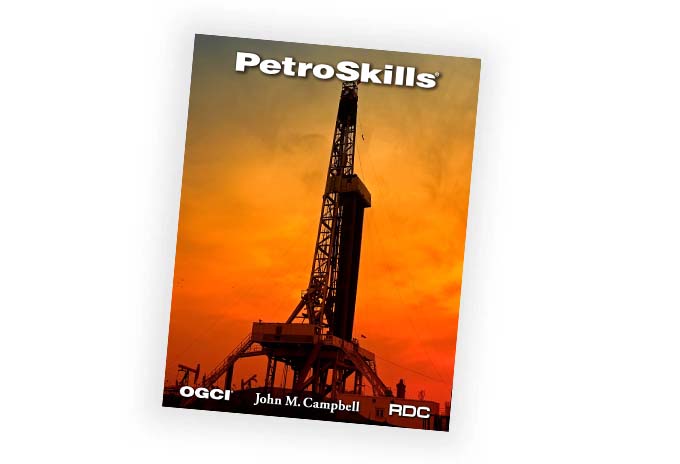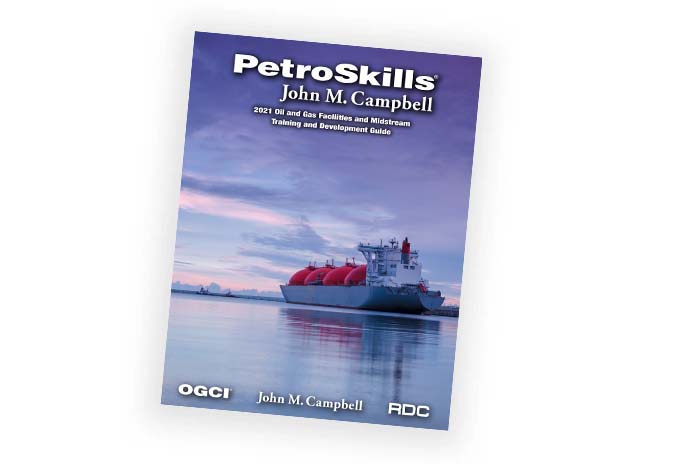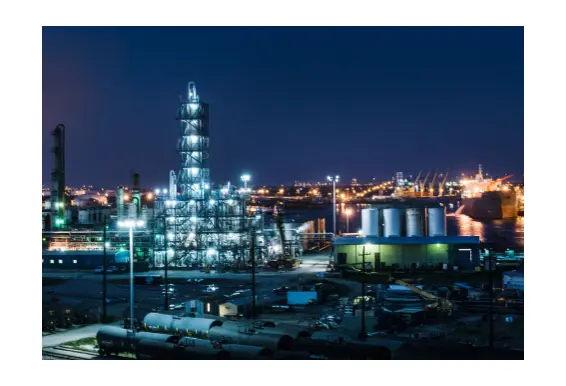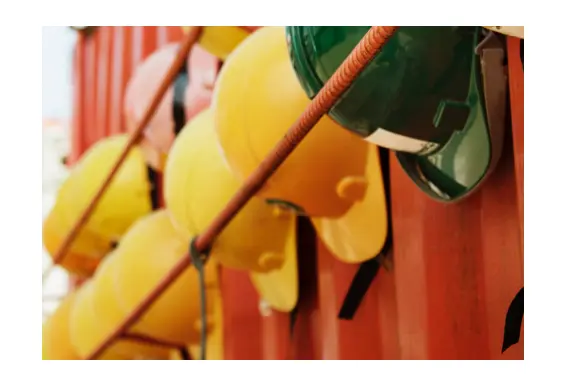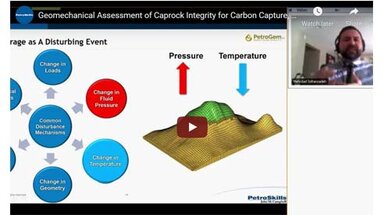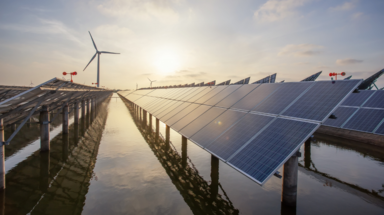Basic Operator Training
ePilot™ eLearning Series
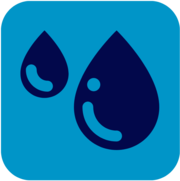 OPERATOR TRAINING FUNDAMENTALS
OPERATOR TRAINING FUNDAMENTALS
6 Courses
24 Total Hours
Duration: 5 hours
In this program, you will learn about the types of fluids and their chemical and physical nature, the nature of phase, how phase change is used, and how it can be controlled. The program goes on to cover the instruments and units for measuring fluids. This includes units for measuring pressure, temperature, density, and viscosity. You will also learn about the nature of absolute measurements and how to convert measurements from one unit to another.
Duration: 4 hours
In Hydrocarbon Phase Behavior and Vapor-Liquid Equilibrium, you will learn about the phase behavior, vapor-liquid equilibrium, the water content of gas, and hydrates.
Duration: 4 hours
Instrumentation is a series of learning programs designed to provide operators with a general sense of how instrumentation plays its role in the efficient operation of a refinery. In Fundamentals of Control, you will learn about the basics of instrumentation, including the control loop, process variable indicators, process instrument equipment, and piping and instrumentation diagrams.
Duration: 2 hours
A company may have several production processes. Having uniform standards for instrumentation systems used for measurement and control simplifies and helps explain the process. In this program, you will learn standard symbols used in instrumentation systems how to apply them.
Duration: 4 hours
Hydrocarbon processing involves many types of fluids. Mechanics of Fluids is a series of five learning programs covering the principles of fluid handling in refineries and other process industries. In Introduction to Process Fluids, you will learn about types of fluids and their chemical and physical nature, including gas compressibility and liquid incompressibility. You will learn about the nature of phase, how phase change is used, and how it can be controlled. You will also learn about the fluid distillation process, types of fluid systems and emulsions.
Duration: 5 hours
In this second program, operators will learn about process components, variables, and safety devices involved in offshore oil and gas production. Operators will also learn about safety requirements specified in API's Recommended Practice 14C, including identifying undesirable events, reading and interpreting Safety Flow Charts, and identifying components of the Emergency Shutdown System.This program is designed for all offshore oil and gas production positions and personnel involved in the operation, maintenance or testing of production safety systems and devices.
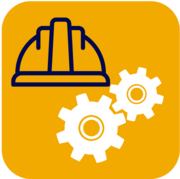 OPERATIONAL DUTIES
OPERATIONAL DUTIES
6 Courses
10 Total Hours
Duration: 4 hours
Hazard Communication is designed to help you meet the training requirements of 29 CFR 1910.1200(k). It covers information mandated by the standard including detailed training on the GHS, labels and safety data sheets, physical and health hazards, and working safely with hazardous chemicals.
Duration: 2 hours
Lockout/Tagout is designed to help you meet the training requirements of OSHA 29 CFR 1910.147(c)(7). It covers information mandated by the OSHA standard including sources of hazardous energy, isolating equipment and controlling stored energy, applying and removing lockout/tagout and group lockout/tagout.
Duration: 1 hour
Duration: 1 hour
In Maintenance Fundamentals, you will learn about the principles and types of maintenance, including proactive, preventative, corrective, breakdown, and turnaround maintenance; and maintenance workflow planning and strategies.
Duration: 1 hour
To ensure that change (equipment, procedural, or organizational) does not bring risk with it, we have processes for managing the change. Process Safety is a key piece throughout the required steps. This program will introduce change and the management of change in the plant in light of Process Safety Management.
Duration: 1 hour
The plant and facilities need to be prepared to deal with unforeseen events and have plant, equipment and procedures in place to mitigate the consequences of an incident. This is commonly referred to as an Emergency Response Program. This program reviews typical steps within emergency response and preparedness and how these take Process Safety into consideration. We also examine the importance of incident investigation in process safety.
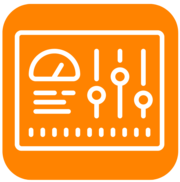 CONTROL ROOM OPERATIONS
CONTROL ROOM OPERATIONS
4 Courses
8 Total Hours
Duration: 1 hour
In Process Control Strategies, you will learn about process variables and instrumentation control systems including open loop systems, feedback control systems, feedforward control systems, and Proportional-integral-derivative controller (PID).
Duration: 2 hours
In Introduction to SCADA Systems, you will learn about Supervisory Control and Data Acquisition (SCADA) and Distributed Control Systems (DCS). SCADA function and basic elements are described, including HMIs, PLCs, and RTUs, along with SCADA communications.
Duration: 2 hours
In SCADA Operation, you will learn about the SCADA system, function, and components, general operation and changing a setpoint. You will also learn about control room cold and warm start-ups, including cold start-up pre-checks and typical start-up screens. Control room facility shutdown is covered, with switch and display guidelines, and an extraction plant shutdown example. Finally, you will learn about control room emergency shutdown recovery.
Duration: 3 hours
In Control Loops, you will learn about control loops and controller action, including control types, controllers, variables, control modes; types of control schemes, including cascade, ratio, split range, feedforward, multivariable and adaptive control; and control loop tuning techniques.
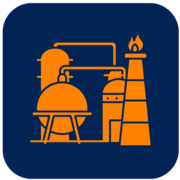 REFINING
REFINING
3 Courses
7 Total Hours
Duration: 2 hours
In Fundamentals of Refining, you will learn about the refining industry as part of the downstream petroleum value chain including characteristics of crude oil and the refining products made from it, refining economics, a typical refinery configuration with its process streams and units.
Duration: 3 hours
Crude oil is made up of a variety of hydrocarbons. In its raw form, however, crude oil is of very little value. To make useful products, the oil must be separated into "cuts," or fractions, that contain similar types of hydrocarbons. This is accomplished by a process called distillation, or fractionation. Distillation uses heat to separate a mixture of hydrocarbons according to their respective boiling points. Crude Distillation is a series of learning programs covering the principles of distillation. This program, Distillation: Overview, begins by explaining the nature of oil, how it is made up and what happens to its structure when it is cracked or reformed. Next, it discusses the different properties of oil, giving special attention to the properties often referred to or measured in the refining process. The program also explains sensible heat, latent heat, vapor pressure, and partial pressure. These lessons form a review of the basic principles of the distillation process, and are presented as background for future programs in the series that explain the actual practical operation of distillation units. The final section of this program is about the process of distillation and how it works. This unit is designed to logically develop the knowledge of the distillation process from the elementary shell still through to the mechanisms of reflux, reboiling, and sidestream drawing of the sophisticated fractionator. An important lesson describes the temperature profile of the tower in distillation, showing the nature of the flow of liquid and vapors in the tower and the reasons for the flow. The final lesson is a review and summary of the entire distillation process.
Duration: 2 hours
In this program, you will learn about refining operations and the products manufactured in a refining facility. You will also be introduced to crude distillation and gain a basic understanding of the systems within these facilities.
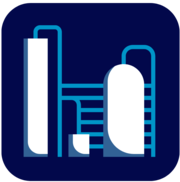 FUNDAMENTAL EQUIPMENT OPERATIONS
FUNDAMENTAL EQUIPMENT OPERATIONS
26 Courses
61 Total Hours
Duration: 2 hours
In Two and Three Phase Separators, you will learn about separator function, operating pressure; vertical, horizontal, and spherical separators; primary separation, secondary separation, mist extraction, and liquid accumulation sections, and separator external components and controls.
Duration: 1.5 hours
In Storage Tanks, you will learn about tank designs, including cone roof, floating roof, dome roof, and pressure vessels; fire protection and hazards, flammable vapor testing, auxiliary equipment, and environmental hazards.
Duration: 1 hour
In Tank Venting Systems, you will learn about the purpose of tank venting, sizing the venting system, pressure/vacuum relief vents, flame arrestors, discharge piping, and compressor and venturi vapor recovery systems.
Duration: 4 hours
Valves are used to control the flow of liquids and gases. In this program, you will learn about the construction and operation of the most widely used valves, such as gate, globe, plug, and check valves.
Duration: 3 hours
Valves are used to control the flow of liquids and gases. In this program, you will learn to operate and maintain valves. You will also learn what valves should be used with various types of service and how to troubleshoot difficulties that may develop due to fouling, leakage, or wear.
Duration: 4 hours
In this program, you will learn about heat transfer as it is applied in modern refining techniques, conduction and convection as methods of heat transfer and heat transfer in tubes. You will also learn the various parts of heat exchangers and their functions, as well as the various types of shell and tube heat exchangers.
Duration: 3 hours
In this program, you will learn about startup and shutdown procedures in heat exchanger operation and maintenance, the various problems of exchanger maintenance, and the flow and mechanisms of various heat exchange systems.
Duration: 3 hours
Internal combustion engines are engines which burn fuel in a cylinder to produce power. In this program, you will learn the details of the auxiliary systems of IC engines and how they operate, including the cooling system, lubrication system, air cleaners, superchargers and exhaust systems. You will also learn the operation and maintenance of the engine, how to read an instrument panel and interpret gauge readings, typical engine start-up and shut-down procedures, and preventive maintenance procedures for daily, weekly and monthly checks.
Duration: 2.5 hours
In Custody Meters, you will learn about custody transfer systems, types of meters and metering components, meter accuracy and standards, flow meter applications, meter proving; and calibrating and troubleshooting custody meters.
Duration: 4 hours
The major source of energy consumption in a refinery, chemical, or petrochemical plant is fuel for fired heaters. Fired heaters are used in many process operations such as distillation, reforming, olefins manufacturing and hydrocracking. Almost every unit in a plant or refinery is equipped with some type of fired heater. With the rising cost of fuel, efficient operation of these furnaces can save hundreds of thousands of dollars each year. In this program, you will learn about safe and efficient operating procedures for fired heaters, including variables that are monitored on the process and combustion sides of the furnace, and the major steps and safety measures in furnace startup, shutdown, and emergency shutdown.
Duration: 3 hours
Centrifugal pumps are machines that use centrifugal force to move liquids. In this program, you will learn the principles, parts, and general operation of these pumps, what pump efficiency is, and how head and pressure are calculated.
Duration: 4 hours
Centrifugal pumps are machines which use centrifugal force to move liquids. In this program, you will learn about the construction of pump parts, including packing boxes, seals, bearings, balancing drums, and couplings. You will learn the relation of alignment and misalignment to vibration, how pumps are lubricated, and how they are cooled in operation. Finally, you will learn the details of pump operation including start-up, normal operation, and shut-down. You will learn what the common problems of centrifugal pump operation are and how to spot and correct them, and how to maintain the pumps for dependable, safe operation.
Duration: 4 hours
Positive displacement pumps are reciprocating and rotary pumps that move liquid by the positive displacement of liquid volume. In this program, you will learn the operating principles and performance characteristics of positive displacement pumps, what determines their capacity, pressure, horsepower and efficiency, and how NPSH is calculated. You will also learn the basic types of reciprocating and rotary pumps, including piston pumps, plunger pumps, diaphragm pumps, direct-acting steam and air pumps, and rotary lobe, vane, gear and screw pumps, and how these pumps differ from each other in design and performance.
Duration: 4 hours
Positive displacement pumps are reciprocating and rotary pumps that move liquid by the positive displacement of liquid volume. In this program, you will learn about packing, lubrication, and cooling systems, the construction and operation of pump valves, pulsation dampeners and suction stabilizers, variable displacement devices and bypasses and relief valves. Finally, you will learn startup and shutdown procedures, how to recognize and solve common pumping problems; and proper operating maintenance.
Duration: 3 hours
In the hydrocarbon processing and production industry, gas is compressed for transportation to consuming markets and for use in processing operations. This program is an introduction to positive displacement compressors.In this program you will learn the operating principles of reciprocating compressors, the different types of rotary compressors, and techniques for controlling compressor output.
Duration: 3 hours
In the hydrocarbon processing and production industry, gas is compressed for transportation to consuming markets and for use in processing operations. This program is an introduction to positive displacement compressors. In this program you will learn the operating principles of reciprocating compressors, the different types of rotary compressors, and techniques for controlling compressor output.
Duration: 0.5 hours
In Pressure Relief Safety Devices, you will learn about the purpose of pressure relief safety devices, common types including conventional relief valve, balanced relief valve, pilot operated relief valve and rupture disk; the difference between a full lift, high lift, or low lift pressure relieving safety device, internal material options for the different service conditions and major factors involved in the selection of a pressure relieving safety device.
Duration: 2 hours
In Flare System Fundamentals, you will learn about applications for gas flaring, such as high pressure protection, natural gas processing, solution gas, and well testing; flare systems; flame monitoring; fuel, pilot, makeup, and purge gases; and flare system equipment.
Duration: 1 hour
In Air Compressors, you will learn about the different types and applications used in the oil and gas industry including their principles of operation based upon Boyle's and Charles gas laws, reciprocating and rotary positive displacement compressors, and centrifugal, ejector and axial flow dynamic compressors.
Duration: 1.5 hours
In Utility and Instrument Air Systems, you will learn about compressed air systems, components, piping configuration, methods of moisture removal, and the hazards and risks associated with them.
Duration: 1 hour
In Chemical Injection Systems, you will learn about the function of chemical injection systems, injection method selection, components, and characteristics; and glycol use and typical injection points.
Duration: 1 hour
In Heat Medium and Hot Oil Systems, you will learn about the function of heat medium systems and hot oil systems, including heat medium distribution, heater, surge tank, pumps, and filter; direct fired heat components, including fuel supply, burners, pilot, burner management system (BMS), and draft and dampers.
Duration: 0.5 hours
In Heat Medium System Operation, you will learn about Heat medium systems, routine operator checks, the heat medium heater, and plant startup and shutdown requirements.
Duration: 1 hour
In Condensers, you will learn about condenser function, aerial coolers, inefficient cooling transfer, including fouling, damage, fin delamination, reduced and inefficient air flow; water cooled exchangers, and back-flushing water cooled exchangers.

